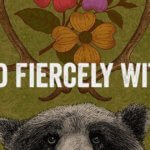I love reading any research I can find on the concept and power of kindness. If you’ve ever had a personal conversation with me, you know that I truly believe that it can be a corporate difference maker. It is one of the core values for Fierce Strategy + Creative and it’s one of my personal core values. I’m fascinated with its importance on so many levels to so many different types of relationships—in the workplace, in the home, with our children, with strangers we interact with throughout the day and in our friendly social circles as well.
The science of kindness is pretty amazing, too. It affects the person positively physiologically who does the kind act, the person who receives the kind act and the people observing the kind act. It’s contagious and I love that.
Below is a link to a great article about kindness in marriages and intimate relationships. It’s a long one so I just pulled out a few excerpts that I loved and wanted to remember.
http://www.theatlantic.com/health/archive/2014/06/happily-ever-after/372573/
“There’s a habit of mind that the masters have,” { Masters are the ones who understand that kindness is critical to the success of a marriage } Gottman explained in an interview, “which is this: they are scanning the social environment for things they can appreciate and say thank you for. They are building this culture of respect and appreciation very purposefully. Disasters { Disasters are the ones who do not practice kindness, but rather attack } are scanning the social environment for partners’ mistakes.”
Kindness…glues couples together. Research independent from theirs has shown that kindness (along with emotional stability) is the most important predictor of satisfaction and stability in a marriage. Kindness makes each partner feel cared for, understood, and validated—feel loved. “My bounty is as boundless as the sea,” says Shakespeare’s Juliet. “My love as deep; the more I give to thee, / The more I have, for both are infinite.” That’s how kindness works too: there’s a great deal of evidence showing the more someone receives or witnesses kindness, the more they will be kind themselves, which leads to upward spirals of love and generosity in a relationship.
There are two ways to think about kindness. You can think about it as a fixed trait: either you have it or you don’t. Or you could think of kindness as a muscle. In some people, that muscle is naturally stronger than in others, but it can grow stronger in everyone with exercise. Masters tend to think about kindness as a muscle. They know that they have to exercise it to keep it in shape. They know, in other words, that a good relationship requires sustained hard work.




